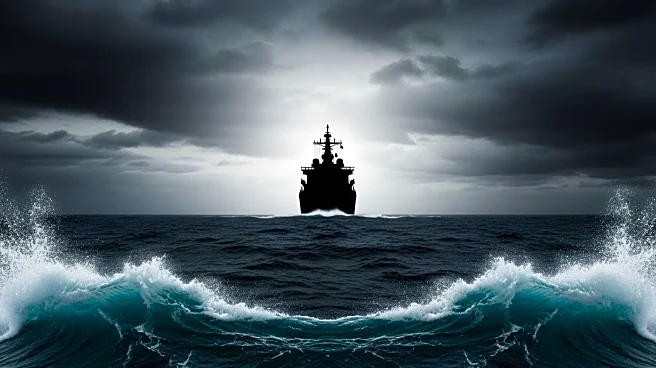What's Happening?
The international flotilla attempting to deliver aid to Gaza has accused Israeli vessels of engaging in 'dangerous and intimidatory manoeuvres' as it nears the blockade. The flotilla, consisting of over 40 civilian boats, reported that Israeli warships approached and encircled two of its vessels, causing a temporary loss of navigation and communication. The flotilla, which includes activists and parliamentarians, aims to challenge Israel's naval blockade of Gaza by delivering humanitarian aid. The mission has already faced drone attacks, and tensions are rising as it approaches the exclusion zone.
Why It's Important?
The flotilla's mission underscores the ongoing humanitarian crisis in Gaza and the international community's divided stance on the Israeli-Palestinian conflict. The blockade, enforced by Israel to prevent arms smuggling to Hamas, has been a point of contention in international law. The flotilla's approach could lead to a diplomatic incident if intercepted, potentially drawing international condemnation or support. The involvement of high-profile activists adds media attention and public scrutiny, influencing public opinion and policy decisions.
What's Next?
As the flotilla nears Gaza, the potential for a confrontation with Israeli forces increases. Israel has stated its intent to prevent any breach of the blockade, which could result in a standoff or military action. Diplomatic efforts may intensify to mediate the situation and prevent violence. The outcome of this mission could set a precedent for future attempts to challenge the blockade and impact broader geopolitical dynamics in the region.
Beyond the Headlines
The flotilla's mission raises ethical questions about the use of humanitarian aid as a tool for political protest. It also highlights the complex legal landscape surrounding naval blockades and the rights of states versus non-state actors in international waters. The involvement of high-profile figures brings additional media attention and public scrutiny to the issue, potentially influencing public opinion and policy decisions.









